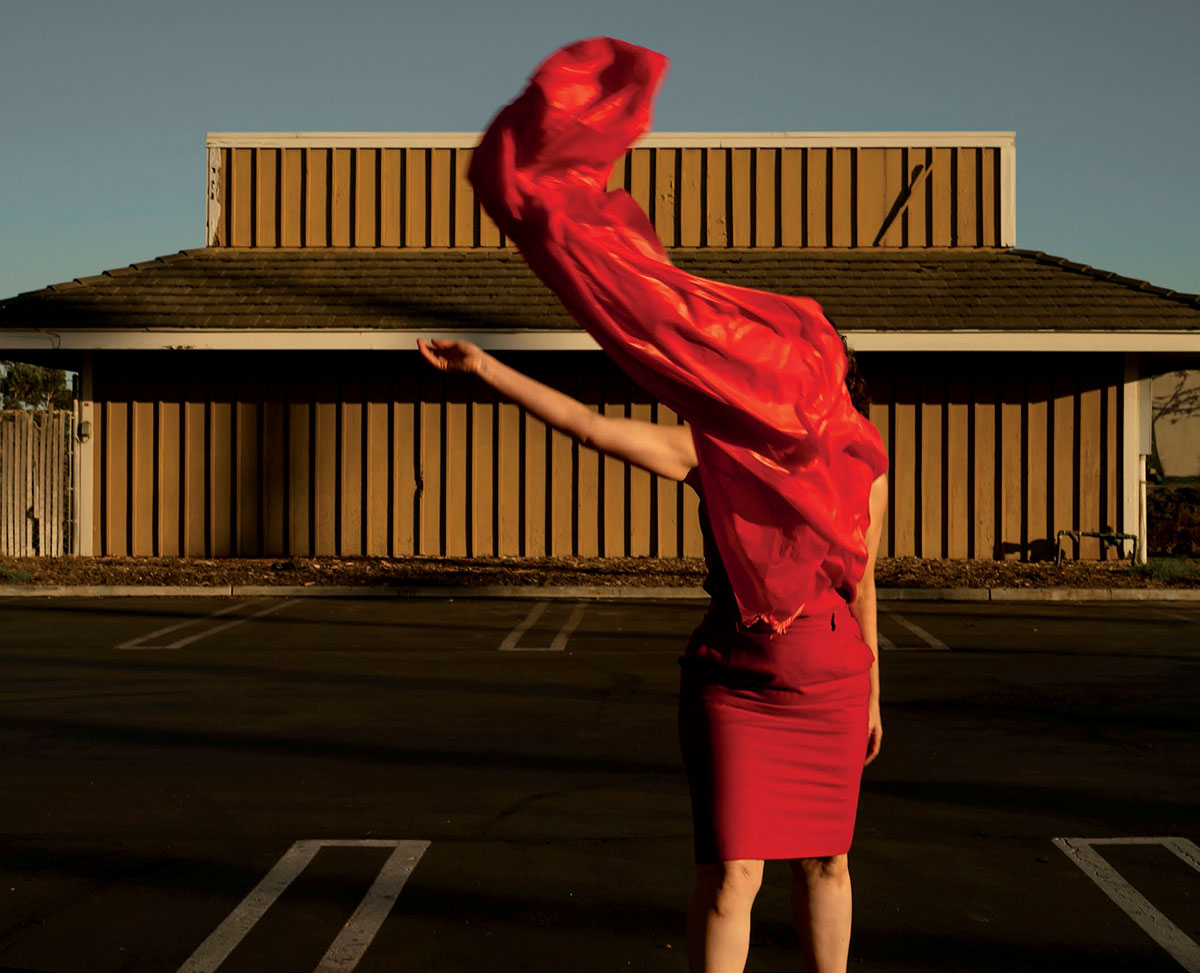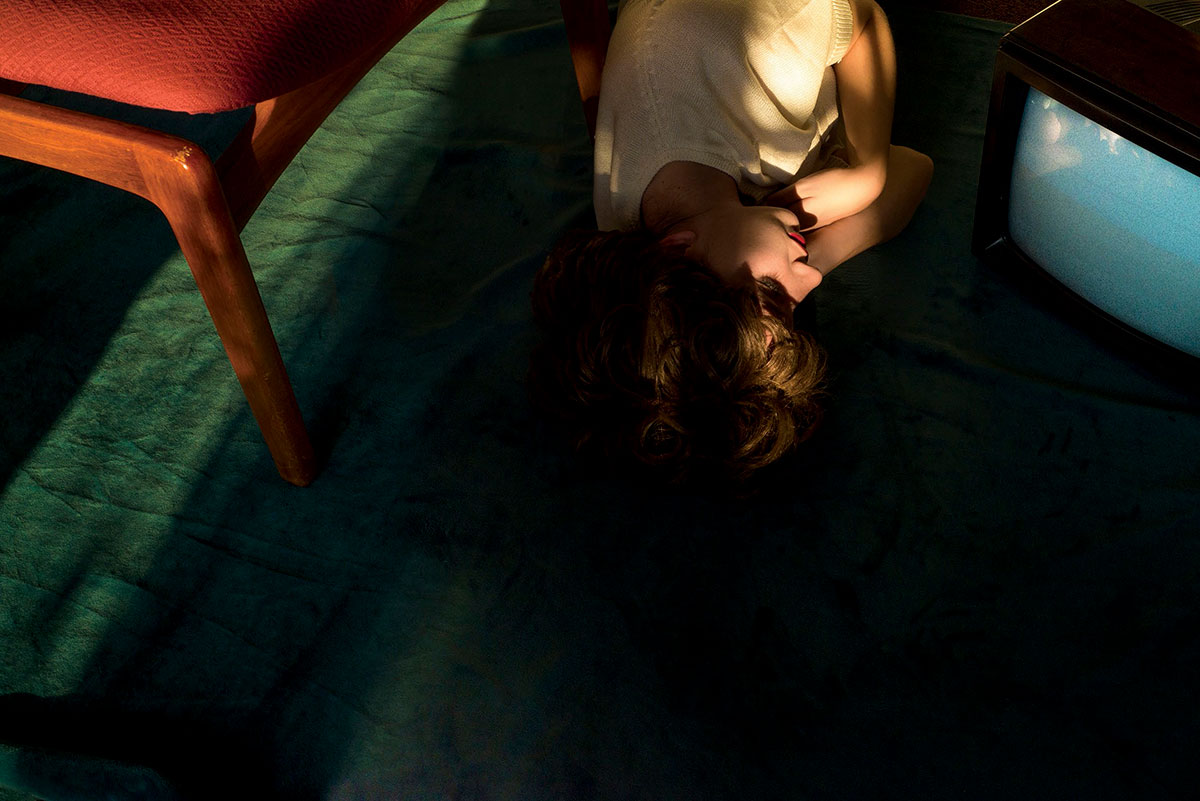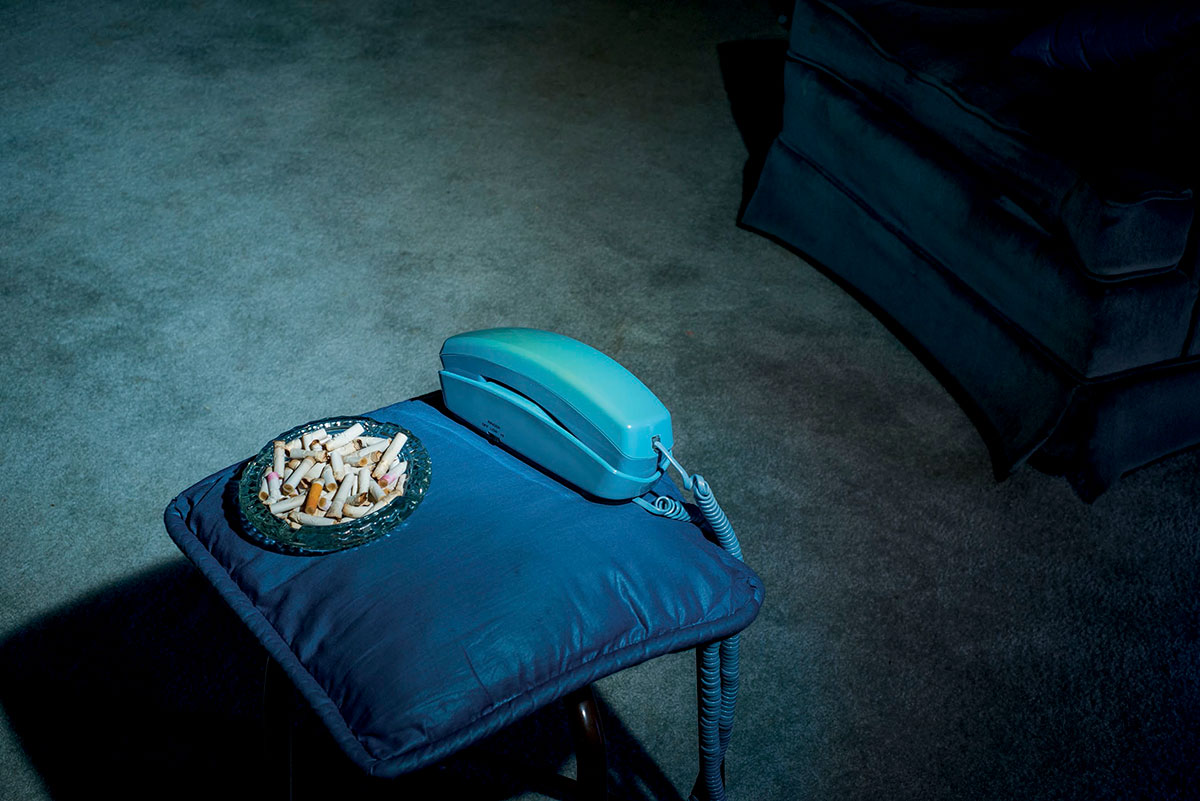
All photographs by Tania Franco Klein © The artist. Courtesy ROSEGALLERY
El Hogar Que Compartimos/Homes We Share
By Curtis Bauer, Clara Muschietti, María Sánchez, and Fedosy Santaella
Te Presento Mi Noche De Paz
Poem by Clara Muschietti
te presento mi noche de paz
sin amor
sin fuegos de artificio
es de tarde pero la noche
los secretos del invierno que dije
mi secreto tiene vena
soy primera en un torneo
que no le importa a nadie,
como hija de padres recientemente separados
me dejo acariciar la cabeza por cualquiera
es que un corazón así
en esas circunstancias
es un corazón mareado
golpeado
tengo adentro un órgano golpeado
cagado a palos
soy grosera por necesidad
como es la vida conmigo
me rapa literalmente hablando
no.
te presento la vida amable
que me hubiera gustado
nací, prácticamente
viví
vivo, prácticamente
tirito
el reflejo del agua
me tiñe esta parte del alma
de acá
y me daña eso que llamo “ser adecuado”
o estilo de vida que corresponde con la idiosincrasia
de otra gente
adentro de cada persona hay otra persona
que piensa más o menos lo mismo
pero en otro idioma.
This Is My Night Of Peace
Poem by Clara Muschietti
Translation by Curtis Bauer
this is my night of peace
without love
without fireworks
it’s afternoon but the night
the winter secrets I told
my secret has blood flowing through
I’m the first in a tournament
no one cares about,
like the daughter of parents recently separated
I’ll let anyone caress my head
it’s just that a heart like this
in these circumstances
is a dizzy heart
beaten
I have a beaten organ inside me
fucked up
I’m rude by necessity
the way life is rude to me
it shaves my head literally speaking
no.
this is the kind life
I would have liked
I was born, practically
I lived
I live, practically
I shiver
the reflection of the water
tints this part of my soul
from here
and what I call being adequate hurts me
or that way of life aligned with the idiosyncrasies
of other people
inside every person there is another person
who thinks more or less the same thing
but in another language.

Photograph by Tania Franco Klein © The artist. Courtesy ROSEGALLERY
Genealogía De La Mancha
Poem by María Sánchez
I
Nacimos hermanas de la gravedad y el paisaje
—zurcidas, impecables, portadoras de aguarrás, estropajos
y lejía. —
De memoria bordada en nuestra piel
una plegaria siempre dispuesta
—de clase trabajadora—
imposible ser fuera de lo doméstico,
confinadas a lo innombrable.
¿podríamos deshacernos y así escapar?
¿dejar que la luz convirtiera cada una de nuestras falanges
en un ciempiés?
II
Pregunte aquí cómo quitar una mancha y se encontrará siempre
con la misma metodología:
aquí el aguafuerte y la lejía
aquí la desinfección
—porque todas las manchas,
aquí,
se quitan de la misma manera—
¿Cómo concebir la pureza fuera del óxido y de la química?
Qué más da la superficie, la hierba, la carne.
Aquí la pureza duerme en la cal y en los dedos rotos
en los nudillos manchados de tanto frotar
Sí, la sangre mancha menos mezclada con lejía.
Sí, la sangre deja de oler si estoy empapada en lejía.
Sí, la sangre olvida su color si la arrastro a la lejía.
¿Podré confundir al agua y a la muerte si les doy el mismo
color?
Quiero un color para la muerte
un color para el dolor
un color aséptico y tembloroso
un color y ella solo responde azul.
III
En la cocina la ternura se amasaba siempre a la hora del café
un venero era mi corazón,
limpiaba la mesa con retales de la bata de mi abuela.
Mamá siempre fregaba,
sólo reía,
—yo ya tengo las manos estropeadas, hija mía—
puchero y picón,
entrelazándose mientras llega el ausente.
Huid del hombre que no duda
que solo sonríe y no tiembla.
Creedme que ese dolor,
que poco a poco comienza a nacer
no os remendará las manos.
Genealogy Of The Stain
Poem by María Sánchez
Translation by Curtis Bauer
I
We were born sisters of gravity and landscape
—stitched, impeccable, those who carry mineral spirits,
scouring pads, and bleach.
Of memory embroidered on our skin
an always ready prayer
—of the working class—
impossible to exist outside domestic space,
we are confined to the unnamable.
could we come undone and so escape?
let the light turn each of our phalanxes into a centipede?
II
Ask here how to remove a stain and you will always find the
same methodology:
here nitric acid and bleach
here disinfection
—because all stains,
here,
are removed the same way.
How to conceive purity without rust and chemistry?
Who cares about the surface, the grass, the flesh.
Here purity sleeps in whitewash and broken fingers
in knuckles marred by so much rubbing.
Yes, blood stains less when mixed with bleach.
Yes, blood stops smelling if I’m soaked in bleach.
Yes, blood forgets its color if I draw it through the bleach.
Can I confuse water and death if I give them the same
color?
I want a color for death
a color for pain
a color aseptic and trembling
a color and she only answers blue.
III
In the kitchen, tenderness was always kneaded at coffee time
my heart was a treasure trove,
I wiped the table with scraps of my grandmother’s robe.
Mamá always did the dishes,
she only laughed,
—my hands are already ruined, my girl—
stewpot and charcoal,
intertwining while the absent one arrives.
Run away from the man who does not doubt
who only smiles and does not tremble.
Believe me that such pain,
which little by little begins to bud,
will not mend your hands.

Photograph by Tania Franco Klein © The artist. Courtesy ROSEGALLERY
El Mundo No Puede Ir Tan Lejos
Poem by Fedosy Santaella
And I’ll never look behind.
—Sixto Rodríguez
Habitar la misma casa,
desde siempre,
con la frente en alto,
como esperando
que un día
llamen a la puerta
y te anuncien
que todo fue un error,
mira usted,
qué pena.
The World Can’t Go That Far
Poem by Fedosy Santaella
Translation by Curtis Bauer
And I’ll never look behind.
—Sixto Rodríguez
Living in the same house
from the start,
head held high,
as if hoping
that one day
someone knocks on the door
to say
it was all a mistake,
look at you,
what a shame.



